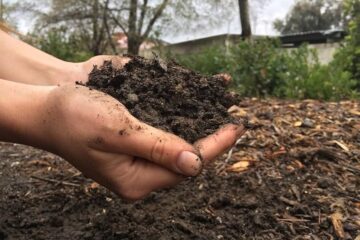How Green Is Your Green?

Going green is something most of us know we should be doing. It’s a noble goal, something that has made its way onto many New Year’s resolution lists, but how committed are we really? Sure, we’ll reuse bags, but only if we remember to bring them from home. And recycling is important until the recycling bin is full, and the regular trash isn’t. However, if being greener is your goal, there are many easy ways to reduce your carbon footprint and they generally have a bonus, too-going green can add some green to your bank account!
Wasted Energy
How many times have you come home to find all the lights on? Using energy when you don’t need it not only wastes money, but it also increases emissions that are harmful to the environment. Call your power companies-they are full of energy-saving suggestions.
Unplug
When an electronic device is not in use, it doesn’t draw energy, right? Wrong! Coffee makers, TVs, and even phone chargers are “energy vampires,” consuming energy when not in use. To remedy this, plug your devices into a UL-certified power strip and simply switch the strip off when they’re not being used.

Catch Some Sun
In our modern world, energy consumption has become unavoidable. Even if you only use energy when needed, this still has a negative impact on our environment. To further lower the harmful emissions (and save money), invest in some solar panels. Solar energy harnesses the sun’s natural energy to power your home. While it requires a substantial investment, there are great long-term financial and environmental benefits.
Buy Locally
Produce you see on your grocery store’s shelves travels for thousands of miles to get there. Since produce tends to go bad quickly, think of the chemicals that have been used to help the produce make it through the journey. Instead of funding the increase of a carbon footprint, why not buy locally sourced food? Farmer’s markets are great places to find fresh, flavorful and delicious fruits and vegetables you can feel good eating.
Hug Some Trees
Trees rely on the carbon dioxide we exhale and in return, they give us oxygen. With the hundreds of trees being cut daily, our backyards won’t combat the imbalance entirely but it sure is a start. In addition, strategically placed trees can help lower your energy bills by providing shade from the sun and reducing the need for air conditioning.
Water Works
Over the next decade, many states expect water shortages. Here are some ways you can do your part:
Taller grass needs less watering so skip every second mowing and watch your water bill decrease.
Buy a filter and drink sink water. The money you’ll save on bottled water could be in the thousands of dollars per year. Plus, no more plastic bottles for our landfills!
Road Trip
By joining others in their commute, you eliminate the energy from each individual vehicle, reducing it to just one. And if you use a bicycle? That saves the environment and your wallet!









